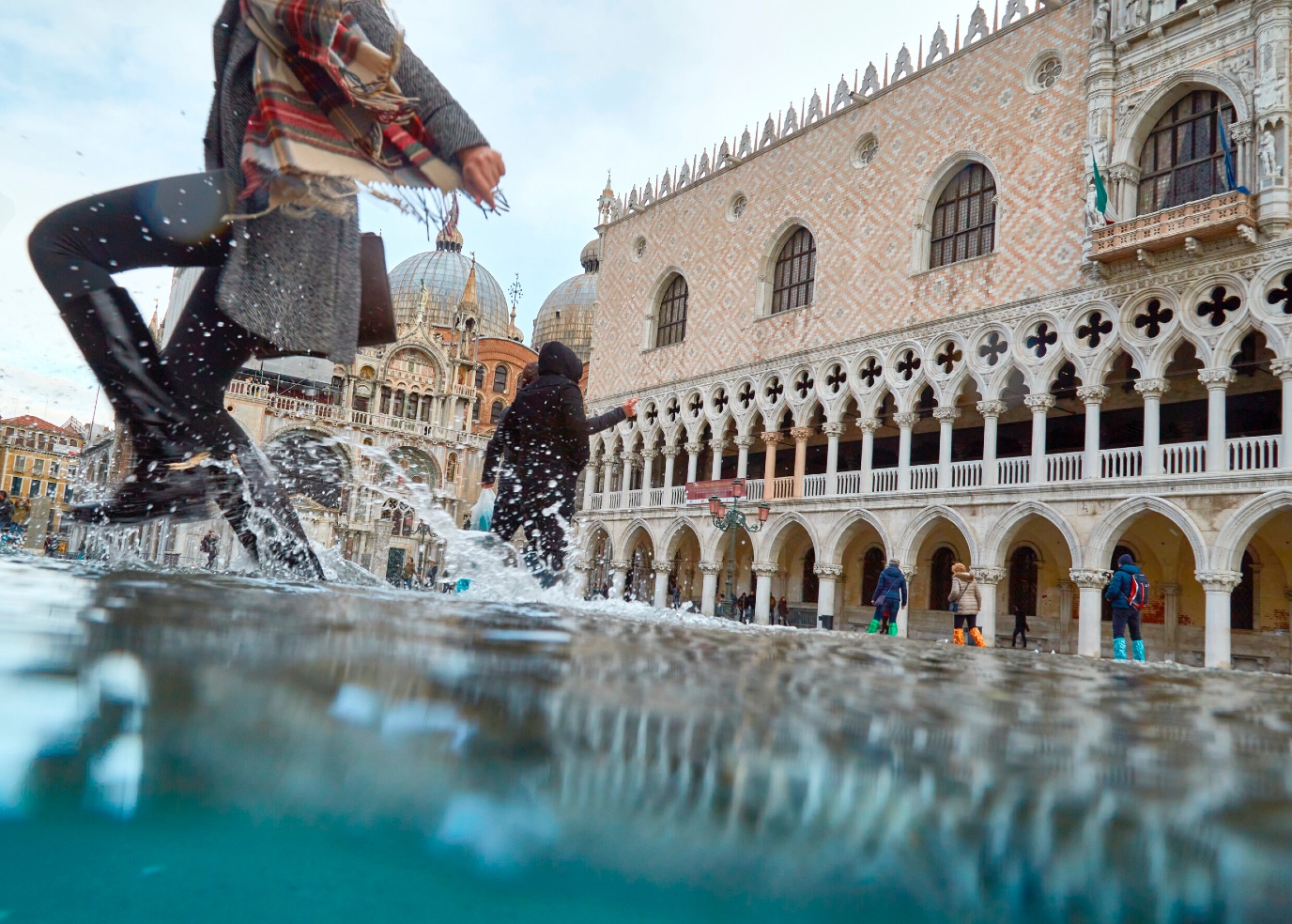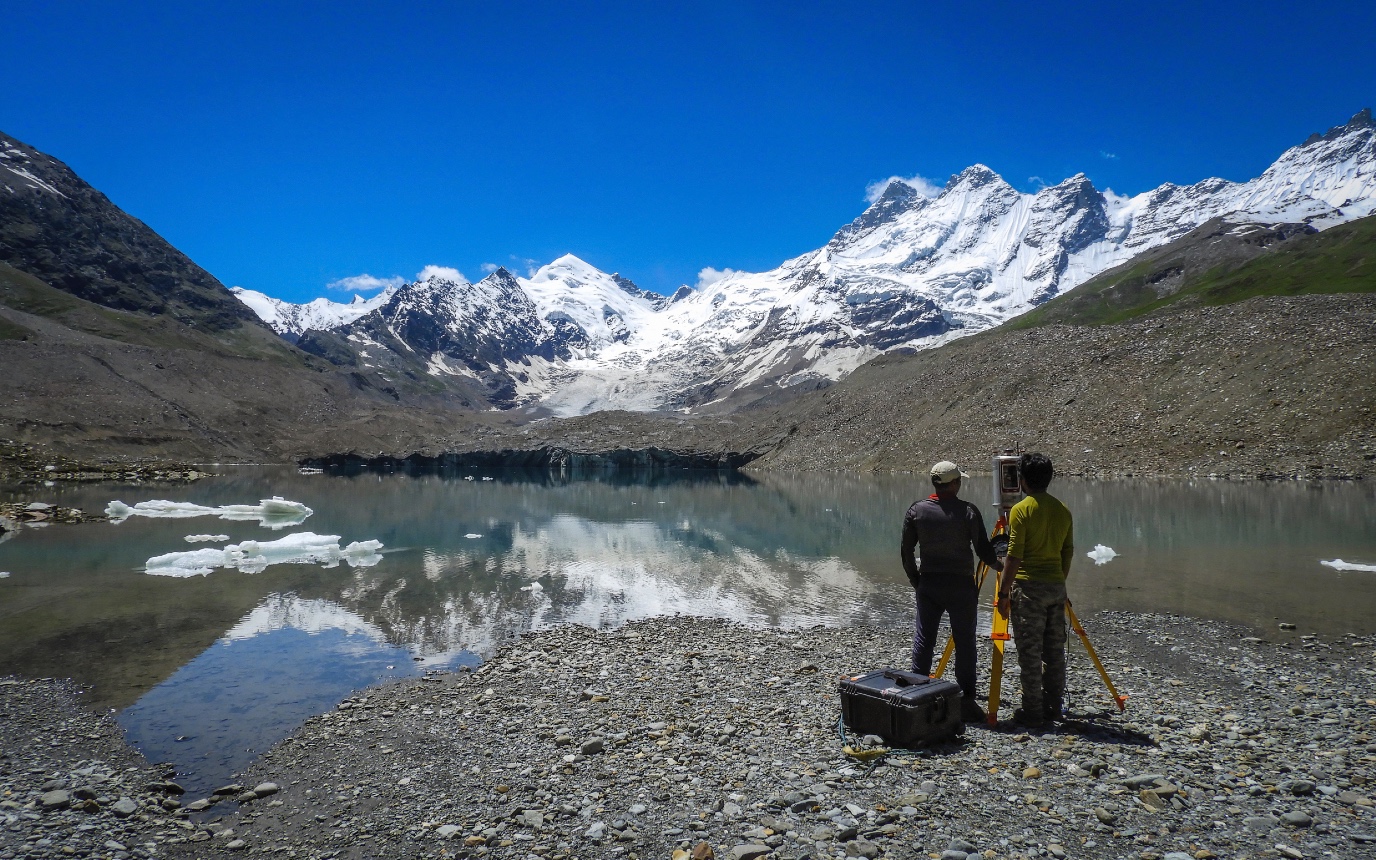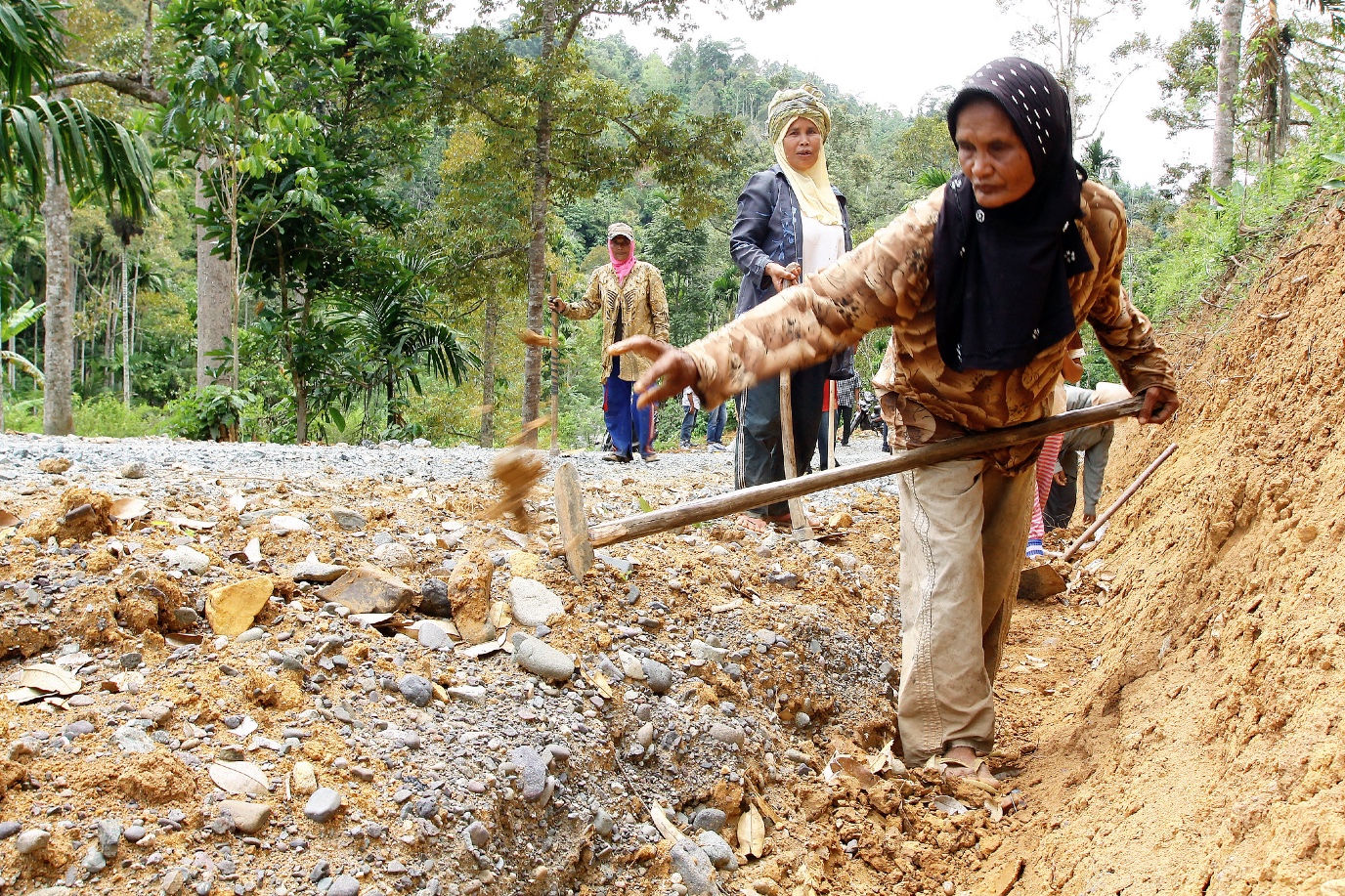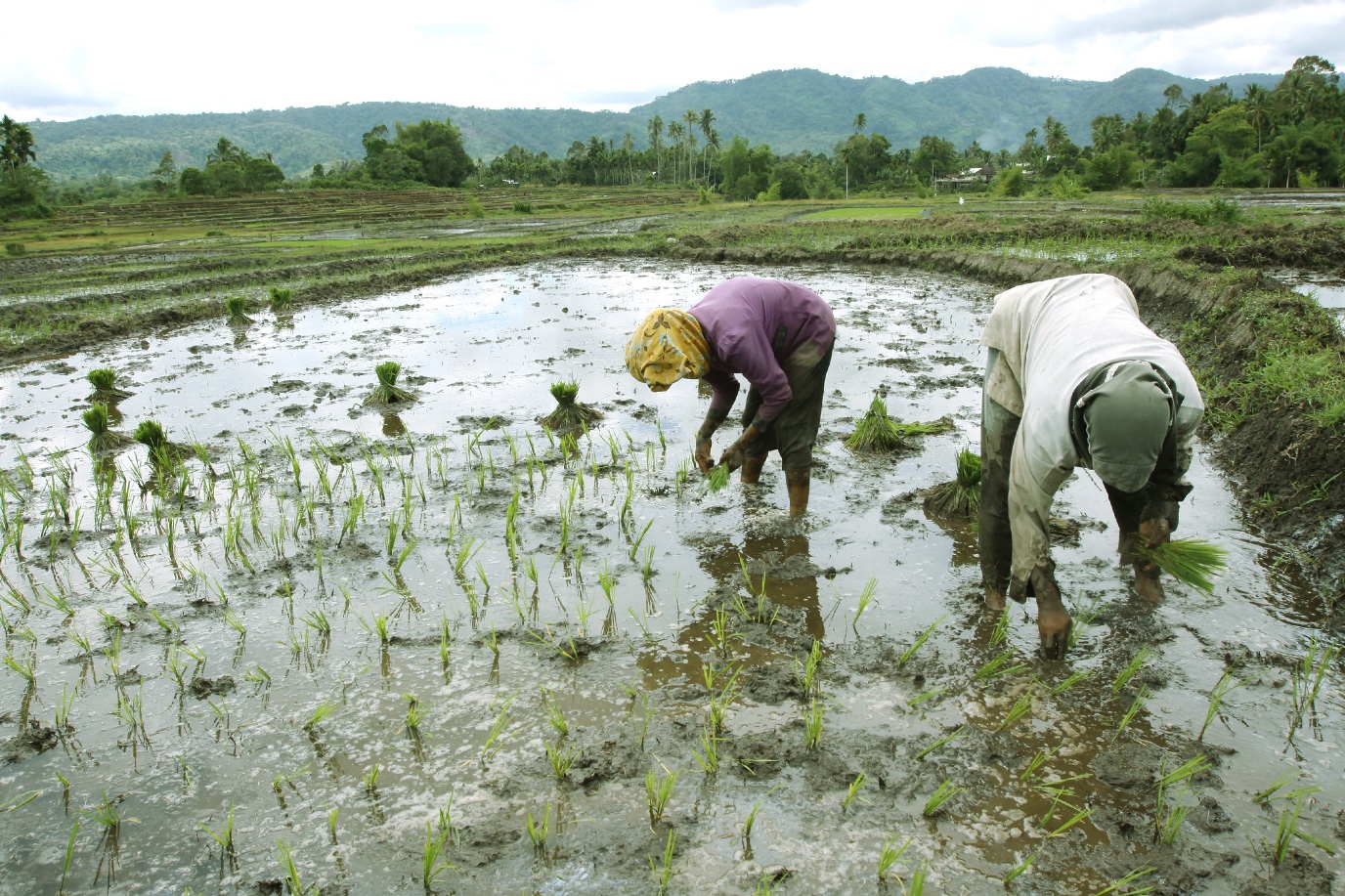Water: wat als we er (soms) te veel van hebben?

We zullen anders om moeten gaan met water, gezien de huidige driedubbele planetaire crisis . Dat betekent ook: ons aanpassen aan veranderende weersomstandigheden. Verschillende wetenschappers van de Faculty of Science and Engineering werken aan modellen om grip te krijgen op die veranderingen en er voorspellingen over te kunnen doen. Want veranderende weersomstandigheden hebben invloed op van alles en nog wat, van energie en voedselvoorziening tot natuurrampen zoals overstromingen.
FSE Science Newsroom | Tekst Charlotte Vlek | Beeld Leoni von Ristok
Voor wind-, water- en zonne-energie vertrouwen we op het weer, maar wat gebeurt er als dat weer verandert?
‘Eén van de grote vraagstukken waar we aan werken is veiligheid,’ vertelt milieuwetenschapper Winnie Leenes. ‘Dan gaat het om bijvoorbeeld overstromingen, denk maar aan de vreselijke overstromingen in Pakistan van 2022. Maar het gaat ook over de dingen die we nodig hebben om te leven: voor wind-, water- en zonne-energie vertrouwen we op het weer, maar wat gebeurt er als dat weer verandert? En wat gebeurt er bijvoorbeeld met onze voedselvoorziening en elektriciteit in periodes van droogte?’
Het smeltwater van de Himalaya

Een promovendus van Leenes werkt aan de impact van klimaatverandering op het smeltwater van de Himalaya. ‘Door hogere temperaturen komt het smeltwater tegenwoordig eerder in het jaar naar beneden,’ vertelt Leenes. ‘En dat heeft gevolgen voor de landbouw in die regio. Ook de neerslag verandert in dat gebied: er is meer regen en minder sneeuw.’
Tijdens het groeiseizoen is de landbouw aan de voet van het gebergte sterk afhankelijk van de smeltsneeuw van hogerop, maar tegen de tijd dat ze het nodig hebben, is het al gesmolten en weggestroomd. Het water komt dus te vroeg in het seizoen, in de vorm van regen én smeltwater, en dan weer een hele tijd niet. Leenes: ‘En dat is ongunstig voor de voedselvoorziening in het gebied.’
Golf-vormige natuurrampen

Een model dat nauwkeurig het verloop van een stroming voorspelt, kan zo een maand nodig hebben om tot een uitkomst te komen.
Ook toegepast wiskundige Julian Koellermeier werkt aan veiligheid, en in het bijzonder aan natuurrampen in golf-vorm, zoals tsunami’s, overstromingen en lawines. 'Met de stijging van de zeespiegel wordt bescherming tegen waterrampen des te belangrijker,' aldus Koellermeier.
Stel, er is een periode van hevige regenval, waterstromen in rivieren zwellen aan. Koellermeier: ‘Een model dat nauwkeurig het verloop van die stroming voorspelt, kan zo een maand nodig hebben om tot een uitkomst te komen.’ Als je een hypothetisch scenario doorrekent om te bepalen hoe hoog je je dijken moet bouwen, is dat niet erg. Maar in het geval van een acute natuurramp wil je binnen twee minuten een uitkomst: je wilt weten of die plotselinge hoeveelheid regen tot een te hoge waterstand gaat leiden die boven de dijk uitkomt, en wanneer dan.
Wiskundigen werken al honderden jaren aan het begrijpen van dit soort vloeistofstromingen, en dus zijn er al allerlei theorieën en modellen. Maar veel modellen zijn ontwikkeld voor een heel specifieke toepassing, zodat ze niet te complex worden. ‘Er zijn modellen voor diepe wateren, zoals oceanen,’ vertelt Koellermeier, ‘en andere modellen over ondiepe wateren zoals rivieren en kustlijnen.’ Eén model dat in alle gevallen een nauwkeurig resultaat geeft? Dat duurt veel te lang om door te rekenen.

En wat kunnen we zelf doen?
Toch waagt Koellermeier zich aan de uitdaging om een zogenaamde hiërarchie van modellen te maken, die alle type oppervlaktegolven kan doorrekenen. Dat wil zeggen: hij zal met zijn groep een hele range van modellen ontwikkelen, waarbij per geval een keuze kan worden gemaakt tussen snelheid en nauwkeurigheid. ‘Wat wij willen weten is: hoe snel plant zo’n golf zich voort, en hoe hoog is ‘ie. Dan kun je verschillende modellen inzetten voor diep water en ondiep water, voor snelle berekeningen en voor meer nauwkeurige berekeningen, en die gaan we allemaal in één softwaresysteem onderbrengen.’ Zo kan de gebruiker simpelweg kiezen: tussen snel en minder nauwkeurig, of traag en heel precies.
Koellermeier zet zich in voor meer bewustwording over mogelijke waterrampen, terwijl Leenes veel samenwerkt met promovendi uit landen waar klimaatadaptatie het meest urgent is, zodat die de kennis mee terug naar huis kunnen nemen. En voor de lezers thuis? Denk ook eens aan de adviezen die eerder in deze water-reeks langskwamen. Zoals zuinig zijn met kleding, minder elektriciteit gebruiken, en regenwater in de tuin laten weglopen.
Op vrijdag 21 maart 2025 organiseert de Wubbo Ockels School for Energy and Climate een evenement over klimaatadaptatie en water , een van de belangrijkste onderzoeksonderwerpen van de School. Centraal staat op deze dag de vraag: Hoe kunnen we de urgentie van en mogelijkheden voor klimaatadaptatie regionaal en (inter)nationaal benadrukken, en hoe kunnen (nieuwe) vormen van communicatie ons hierbij helpen?
Dit artikel is de vierde en laatste in een reeks over wateronderzoek aan de Faculty of Science and Engineering van de Rijksuniversiteit Groningen.
Lees de andere artikelen van deze reeks hier:
Waterschappen zijn soms genoodzaakt om rioolwater onbehandeld te lozen. ‘Dan komt dat dus in een kanaal terecht, of in een meer,’ vertelt informaticus Dilek Düştegör. Ze werkt samen met gemeentes en waterschappen aan computermodellen die moeten helpen om die afvalwaterstroom zo goed mogelijk te beheren.
Biotechnologen Gert-Jan Euverink en Tom Sleutels werken aan betere zuivering van rioolwater, zodat er minder vervuilende stoffen in het oppervlaktewater worden geloosd.
Genoeg drinkwater is niet het enige dat ertoe doet, toont milieuwetenschapper Winnie Leenes: onze zorg zou juist moeten liggen bij het totale zoetwaterverbruik, en hoe dat verbruik het ecosysteem beschadigt.
Meer nieuws
-
17 februari 2026
De lange zoektocht naar nieuwe fysica
-
10 februari 2026
Waarom slechts een klein aantal planeten geschikt is voor leven
